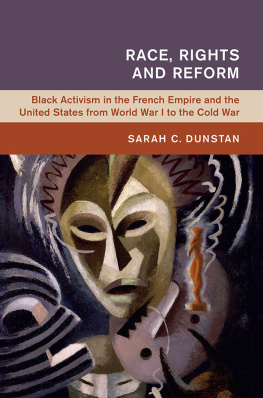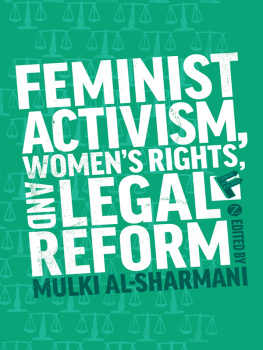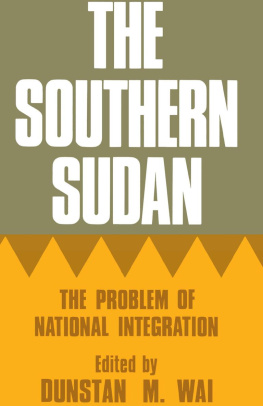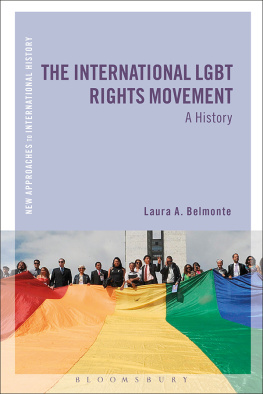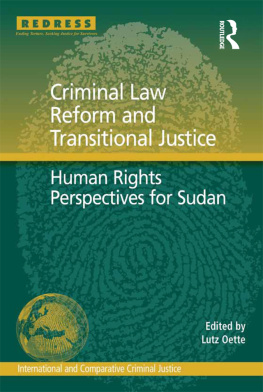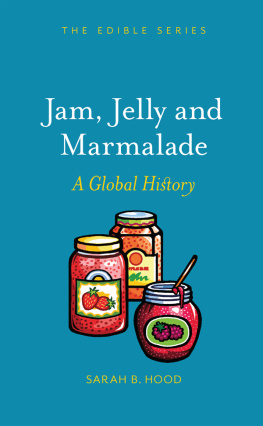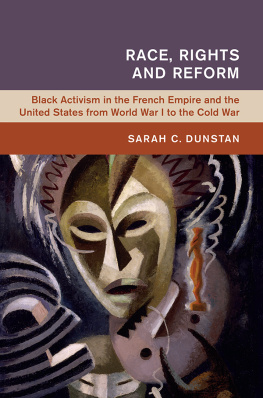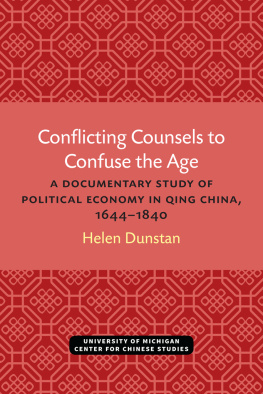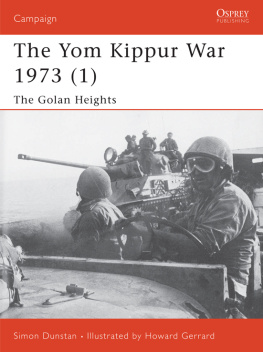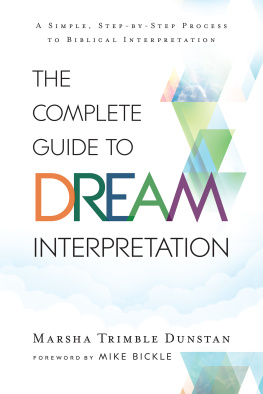Sarah C. Dunstan - Race, Rights and Reform (Global and International History)
Here you can read online Sarah C. Dunstan - Race, Rights and Reform (Global and International History) full text of the book (entire story) in english for free. Download pdf and epub, get meaning, cover and reviews about this ebook. year: 2021, publisher: Cambridge University Press, genre: Politics. Description of the work, (preface) as well as reviews are available. Best literature library LitArk.com created for fans of good reading and offers a wide selection of genres:
Romance novel
Science fiction
Adventure
Detective
Science
History
Home and family
Prose
Art
Politics
Computer
Non-fiction
Religion
Business
Children
Humor
Choose a favorite category and find really read worthwhile books. Enjoy immersion in the world of imagination, feel the emotions of the characters or learn something new for yourself, make an fascinating discovery.
- Book:Race, Rights and Reform (Global and International History)
- Author:
- Publisher:Cambridge University Press
- Genre:
- Year:2021
- Rating:3 / 5
- Favourites:Add to favourites
- Your mark:
- 60
- 1
- 2
- 3
- 4
- 5
Race, Rights and Reform (Global and International History): summary, description and annotation
We offer to read an annotation, description, summary or preface (depends on what the author of the book "Race, Rights and Reform (Global and International History)" wrote himself). If you haven't found the necessary information about the book — write in the comments, we will try to find it.
Race, Rights and Reform (Global and International History) — read online for free the complete book (whole text) full work
Below is the text of the book, divided by pages. System saving the place of the last page read, allows you to conveniently read the book "Race, Rights and Reform (Global and International History)" online for free, without having to search again every time where you left off. Put a bookmark, and you can go to the page where you finished reading at any time.
Font size:
Interval:
Bookmark:
Race, Rights and Reform
Black Activism in the French Empire and the United States from World War I to the Cold War
Sarah C. Dunstan constructs a narrative of black struggles for rights and citizenship that spans most of the twentieth century, encompassing a wide range of people and movements from France and the United States, the French Caribbean and African colonies. She explores how black scholars and activists grappled with the connections between culture, race and citizenship and access to rights, mapping African American and francophone black intellectual collaborations from the Paris Peace Conference in 1919 to the March on Washington in 1963. Connecting the independent archives of black activist organizations within America and France with those of international institutions such as the League of Nations, the United Nations and the Comintern, Dunstan situates key black intellectuals in a transnational framework. She reveals how questions of race and nation intersected across national and imperial borders and illuminates the ways in which black intellectuals simultaneously constituted and reconfigured notions of Western civilization.
Sarah C. Dunstan is a Leverhulme Early Career Fellow at Queen Mary University of London.
Erez Manela, Harvard University
John McNeill, Georgetown University Aviel Roshwald, Georgetown University
The Global and International History series seeks to highlight and explore the convergences between the new International History and the new World History. Its editors are interested in approaches that mix traditional units of analysis such as civilizations, nations and states with other concepts such as transnationalism, diasporas, and international institutions.
Race, Rights and Reform
Black Activism in the French Empire and the United States from World War I to the Cold War
Sarah C. Dunstan
Queen Mary University of London


University Printing House, Cambridge CB2 8BS, United Kingdom
One Liberty Plaza, 20th Floor, New York, NY 10006, USA
477 Williamstown Road, Port Melbourne, VIC 3207, Australia
314321, 3rd Floor, Plot 3, Splendor Forum, Jasola District Centre, New Delhi 110025, India
79 Anson Road, #0604/06, Singapore 079906
Cambridge University Press is part of the University of Cambridge.
It furthers the Universitys mission by disseminating knowledge in the pursuit of education, learning, and research at the highest international levels of excellence.
www.cambridge.org
Information on this title: www.cambridge.org/9781108486972
DOI: 10.1017/9781108764971
Sarah C. Dunstan 2021
This publication is in copyright. Subject to statutory exception and to the provisions of relevant collective licensing agreements, no reproduction of any part may take place without the written permission of Cambridge University Press.
First published 2021
A catalogue record for this publication is available from the British Library.
ISBN 978-1-108-48697-2 Hardback
Cambridge University Press has no responsibility for the persistence or accuracy of URLs for external or third-party internet websites referred to in this publication and does not guarantee that any content on such websites is, or will remain, accurate or appropriate.
It would take another book, at the very least, to properly thank the people who have made mine possible. My debts traverse continents. I am deeply grateful to the many people who have offered me advice, kindness and patience. A common adage is that you should never meet your heroes. My experience has been the exception that proves the rule. As a postgraduate and early career scholar, I have had the opportunity to meet many of the scholars whose work has inspired and galvanized me. On every occasion, I have been met with intellectual generosity and lively debate.
One such example is my PhD supervisor, Shane White. Shanes brilliant work on African American life first brought me to the University of Sydney, and his intellectual spirit and committed mentorship (not to mention his brilliant literary recommendations and exhortations to live beyond academia) have sustained me throughout every step of the project. From the beginning, he has challenged me to be the best that I can, both as a historian and as a writer. His attention to detail both historical and grammatical is impressive, along with his passion for African American history. I continue to benefit greatly from his wisdom and his friendship, for which I am most grateful.
The History Department at the University of Sydney is peopled with exceptional scholars and human beings. I only had the privilege of having Stephen Robertson as my associate supervisor for a few months before he moved to George Mason University in Washington, DC. Despite this, he made a point of offering support from afar advice on archival organization and reassuring conversations when we met up at conferences. This brings me to Marco Duranti, who stepped in as my associate supervisor after Stephen left. A human rights scholar and European historian, Marcos mentorship made my work stronger with his critical engagement and his constant encouragement. While Marco was on sabbatical at Cambridge, Glenda Sluga kindly stepped in as an associate supervisor for the final months of my dissertation. Unofficially, however, Glendas advice and support have shaped my intellectual trajectory from the beginning of my postgraduate degree. Her warmth and intellectual verve have been indispensable. Our conversations about transnational and international history carried over into her brilliant mentorship in my position as a Postdoctoral Fellow with the International History Laureate in 20172018 and have indelibly shaped this work. At the Laureate, I had the good fortune to work alongside Ben Huf, Claire Wright and Beatrice Wayne, who provided both intellectual challenge and a great deal of fun.
At Sydney, I also had the good fortune of being able to discuss French imperial history (and swap tales of freezing Paris winters) with Robert Aldrich. Several of my chapters have benefitted greatly from Roberts comments, criticisms and suggestions. Chris Hilliards cultural and intellectual history seminars were a source of inspiration and prompted careful reflection about my own methodologies. Michael McDonnell has been similarly thoughtful and supportive, offering crucial advice on the structure of this book. For their conversation, enthusiasm and encouragement, I would also like to thank Thomas Adams, Frances Clarke, Sophie Loy-Wilson, Iain McCalman and Mark McKenna.
Font size:
Interval:
Bookmark:
Similar books «Race, Rights and Reform (Global and International History)»
Look at similar books to Race, Rights and Reform (Global and International History). We have selected literature similar in name and meaning in the hope of providing readers with more options to find new, interesting, not yet read works.
Discussion, reviews of the book Race, Rights and Reform (Global and International History) and just readers' own opinions. Leave your comments, write what you think about the work, its meaning or the main characters. Specify what exactly you liked and what you didn't like, and why you think so.

